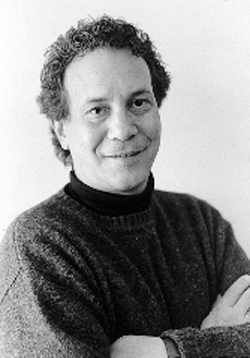Robert McNamara’s career “unconventional”
|
In response to the passing this week of Robert McNamara, Temple historian Richard Immerman commented on the legacy of the former defense secretary, who is known for leading the nation into Vietnam. “There was nothing orthodox or conventional about Robert McNamara’s public career,” Immerman said. “A former World War II ‘Whiz Kid’ who burnished his reputation while at Ford, he joined the Kennedy administration with virtually no government experience—and as a Republican in a fiercely Democratic administration.” As was the case when Eisenhower chose GM’s Charles Wilson as secretary of defense, Kennedy wanted a business executive to run a huge Pentagon, but according to Immerman, “whereas Wilson ceded policy content to Eisenhower, McNamara waded in matters of military policy and strategy about which he knew nothing. The results were mixed, but mostly catastrophic.” |
 Richard Immerman
|
|
“He contributed positively to the settlement of the Cuban Missile Crisis, but in Vietnam he was the architect of one of America’s greatest tragedies. He will always be associated with the futile effort to apply ‘systems analysis’ to human behavior,” Immerman noted. “To his credit, by 1967 McNamara had come to recognize he was wrong. He purportedly cried when watching an anti-war protest from his Pentagon window. Lyndon Johnson, never one to tolerate dissent in his administration, eased him out by appointing him head of the World Bank. There McNamara sought to make amends by focusing on international development even as he became a leading voice in ending the nuclear race toward Armageddon. He went on record as advising the U.S. to renounce any intention of ever launching a first strike. “McNamara will doubtless be most remembered for his memoir in which he not only listed the lessons learned from the misguided Vietnam adventure, but also apologized to both the American and Vietnam people. Perhaps no public figure ever bared his soul to this extent — ‘I was wrong, terribly wrong,’ he wrote.” For many, however, his apology was too little too late, explained Immerman. “But some believe it was better late than never. McNamara was unusual in that he actually seemed to have learned in office. I doubt many historians will write that about more contemporary government officials,” Immerman said. From September 2007 through December 2008, Immerman served as assistant deputy director of national intelligence for analytic integrity and standards and analytic ombudsman for the Office of the Director of National Intelligence. He is The Edward J. Buthusiem Family Distinguished Faculty Fellow in History and Marvin Wachman Director of the Center for the Study of Force and Diplomacy (CENFAD) at Temple University. His research and teaching interests include: History of U.S. Foreign Relations; International History; Cold War America, and the History of Intelligence. |
|